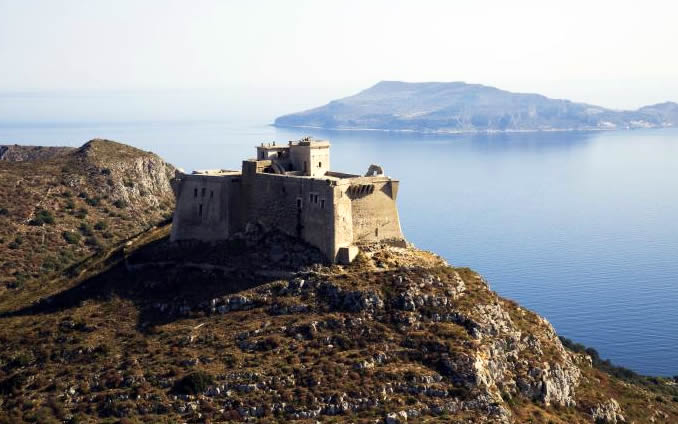


Or ...





With the Swabians, the Castle of Saint Catherine was leased to Palmerio Abate, who was appointed Governor of the Castle of Favignana. During the Angevin domination of the island there was a riot protesting against the high taxes, that the French rulers had established, bringing the population to despair. According to some sources, one of the conspirators leading the revolt was, in fact, Palmerio Abate, and under his leadership, the Angevins ceased to rule. After the Angevins came the Aragonese and with the reign of Peter I of Aragon, the descendants of Palmerio Abate were appointed lords of Favignana, so we can deduce that for a certain period, the Castle of Saint Catherine was handed down by inheritance.
At the end of 1400 the Lord of Favignana Andrea Riccio rebuilt the Castle of Saint Catherine in its current form that we know today, using tuff stone extracted from the island. Next to the castle of S. is that of S.Giacomo (St. James), which in the seventeenth century was used, together with the castle of Saint Catherine, as a prison-fortress for the many political prisoners of the time. In fact, during the Bourbon period, a brutal repression was carried out and it is said that about 32000 people were imprisoned in the Castle of Saint Catherine, suffering the worst possible imprisonment.
During the revolt of 1860, which led to the unification of Italy, the Castle of Saint Catherine was looted and devastated and now lives in a complete state of disrepair.
During the Second World War it was requisitioned by the Navy.
To visit the Castle of you can travel by various means (by car, bicycle or on foot) along the road leading to the hill of Saint Catherine.
Or ...


